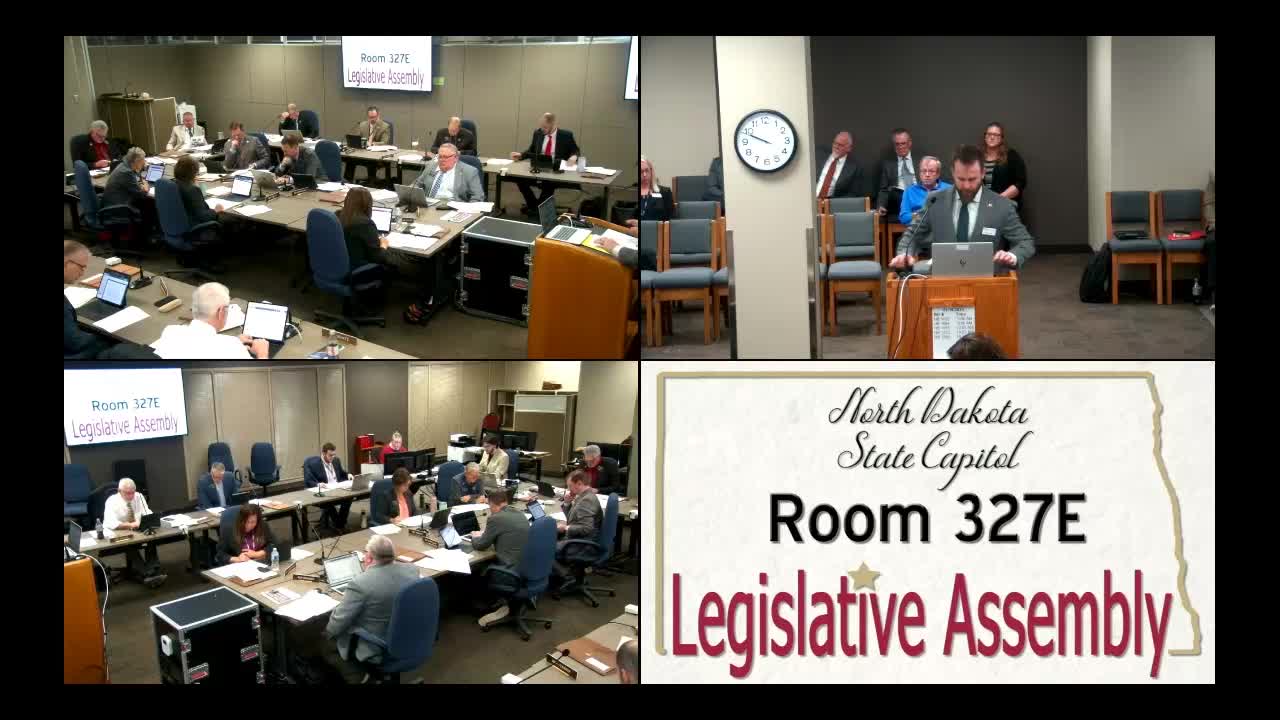Committee rejects DOT plan to run statewide sponsorship program for highway services
Get AI-powered insights, summaries, and transcripts
Subscribe
Summary
The House Transportation Committee voted 13–1 to recommend a do-not-pass on House Bill 1054, which would have authorized the North Dakota Department of Transportation to enter sponsorship agreements and use a vendor to manage litter pickup, rest-area maintenance and similar services with sponsor recognition signs in the highway right-of-way.
The House Transportation Committee recommended a do-not-pass on House Bill 1054, a Department of Transportation proposal to authorize sponsorship agreements for highway-related services and sponsor-recognition signs on the state highway system. The committee recorded a 13–1 recommendation against the bill after extensive questioning about contracting, signage, and potential commercial advertising in the right-of-way.
Matt Lindeman, deputy director for engineering at the North Dakota Department of Transportation, described the bill as a tool to "alternatively resource the operation and maintenance of highway facilities, including but not limited to litter removal, rest area cleaning, or landscaping maintenance." His testimony explained the department’s model: the DOT would contract with a vendor that would secure sponsorships, hire the workers or subcontracts, and place acknowledgement signs to recognize sponsors. "There would be no cost to the DOT," Lindeman told the committee; he said the vendor would solicit funds from sponsors and use those funds to perform the work.
Committee members and outside witnesses raised a range of concerns. Representatives and witnesses questioned the competitiveness and market effects of awarding a statewide exclusive contract to a single vendor, potential interference with existing private contractors, the prospect of commercial logos in the state right-of-way, and risks to continuity of essential services if sponsorships lapsed. Jim England and Leo Ness of Newman Signs opposed the measure, describing it as a pathway to advertising in the right-of-way and warning of unintended consequences; England cited past instances in other states where sponsorship programs produced controversial outcomes.
Members sought more detail on costs the DOT currently pays for rest-area contracts and for how the adopt-a-highway program is declining. Lindeman said the DOT currently contracts for rest-area cleaning and that volunteers still operate adopt-a-highway segments, but that rest-area contract bidders are becoming scarcer. He also said the DOT would gather data from other states that run similar programs on costs and savings.
After the hearing and follow-up questions, the committee approved a do-not-pass recommendation on HB1054 by roll call, 13–1. Representative Casper, who moved the do-not-pass, and others argued the measure would create a statewide monopoly for a private vendor, threaten private-sector contractors, and allow logos on signs in the right-of-way. The committee did not advance the measure.
Votes at a glance: House Bill 1054 — committee recommendation: Do not pass (13–1).
